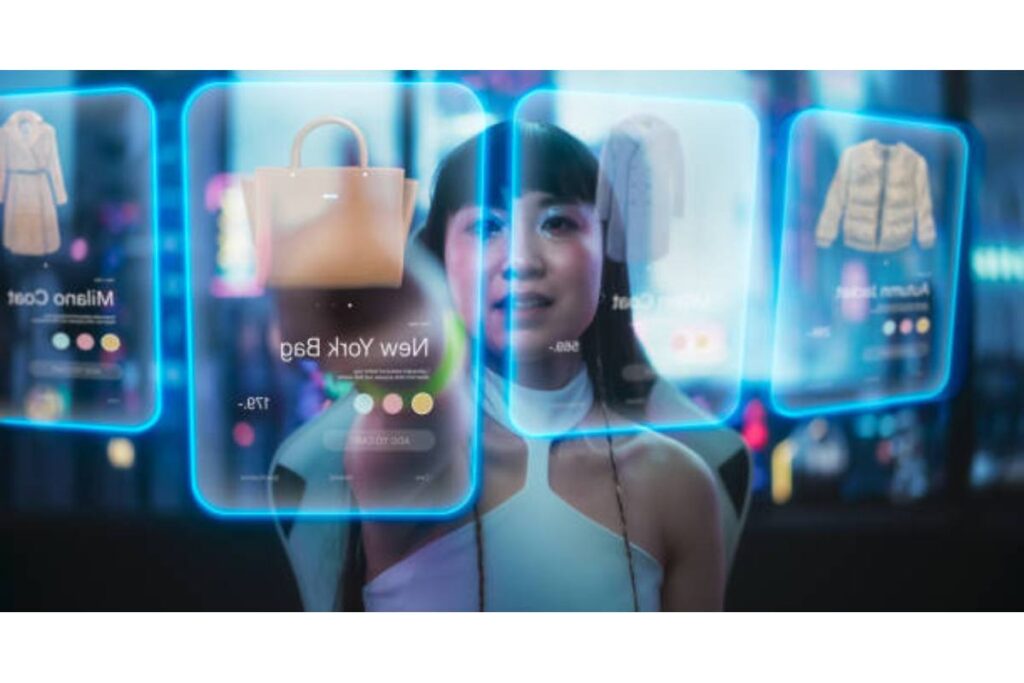Discover how artificial intelligence is revolutionizing e-commerce, optimizing campaigns, and personalizing the customer experience.
Competition in the e-commerce world is fierce, so brands constantly look for new ways to attitude out and connect more effectively with their customers. In this situation, artificial intelligence is emerging as a valuable tool for transforming how marketing campaigns are executed and defining the customer experience. But how can we maximize the potential of AI in our digital campaigns?
Optimizing campaign performance
The impression of artificial intelligence on optimizing the performance of paid media campaigns is undeniable. Thanks to advanced algorithms and machine learning, advertising platforms can analyze large data capacities in real time, uncovering patterns and trends that might have previously gone unnoticed.
A robust use case for this capability could be generating product insights using generative artificial intelligence. Consider a virtual assistant that provides valuable insights into your catalogue. You can ask questions such as: What is the highest revenue category? Which products are the best sellers? And receive correct answers based on the data available on the platform.
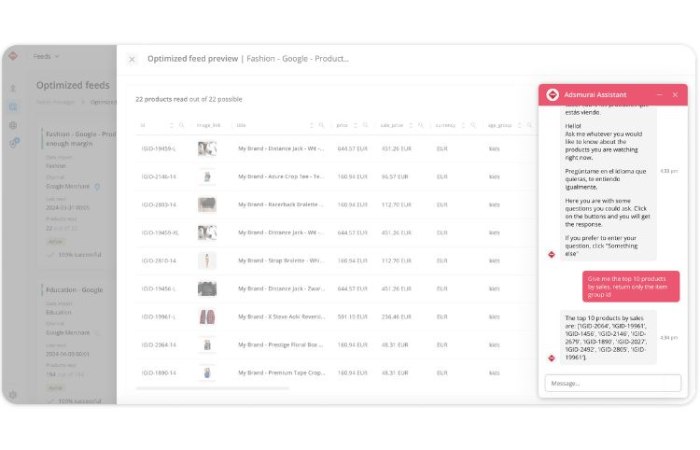
This approach maximizes campaign effectiveness and enables a more profound and faster understanding of user behaviour. This minimizes wasted resources by directing efforts toward the most effective and cost-effective strategies, demonstrating the transformative power of artificial intelligence in e-commerce.
Personalization, relevance, and dynamic creatives
Personalization has always been key to marketing success, and artificial intelligence takes this idea even further by integrating dynamic creatives. With the ability to process data on user behaviour, preferences, purchase history, and more, brands can create highly personalized experiences for each customer. From product recommendations to targeted advertising, artificial intelligence makes every interaction relevant and meaningful, increasing the likelihood of conversion and loyalty.
Two clear examples of how AI fuels this personalization are selecting specific images for campaigns and generating images for advertisements. Campaign-specific image selection uses advanced algorithms to automatically categorize and choose the best product images, improving the visual quality of your ads. For example, we could prioritize images with models over just products and automatically launch campaigns with this optimization. In addition to saving time and improving the visual quality of ads, this solution also increases the relevance and impact of advertising campaigns. Furthermore.
AI-powered image generation can create highly personalized visual content. By specifying the desired elements, from the environment to the products themselves, AI can generate images perfectly tailored to the needs of each advertising campaign.
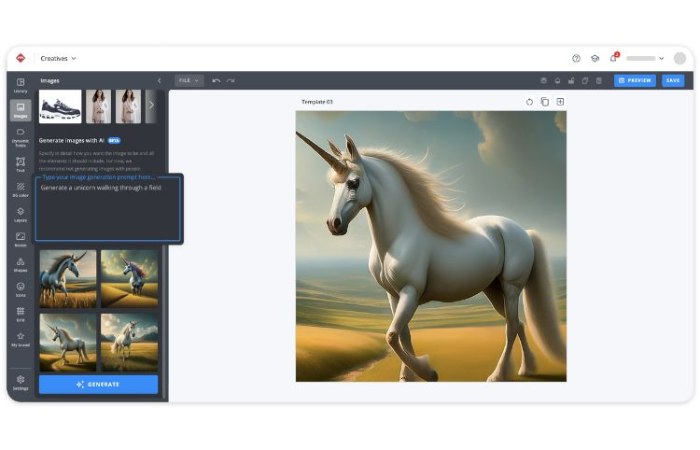
These use cases demonstrate how the combination of personalization, relevance, and dynamic creation delivers a richer user experience and increases the effectiveness of paid media campaigns in e-commerce.
Efficiency in campaign management
Another crucial aspect is efficient campaign management. This has become crucial in digital marketing, and artificial intelligence has proven to be a valued tool. By automating tedious tasks such as audience segmentation, bid optimization, and ad scheduling, AI frees up time and resources that can be reinvested in more creative and high-level strategies.
A critical use case in this area is automatic product categorization. Implementing the google product category field can be tedious, especially for brands with an extensive catalogue. With artificial intelligence, this attribute could be predicted and automatically populated in the product catalogue based on product information. This automation streamlines the product management process and ensures consistent and accurate categorization across all sales platforms.
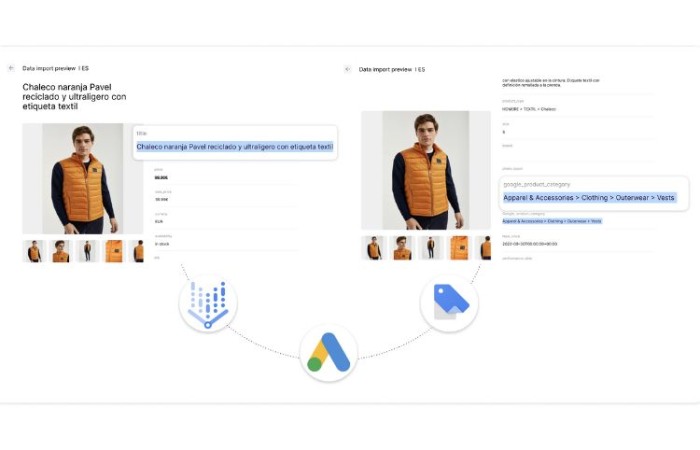
Automatic product categorization is just one example of how artificial intelligence can optimize campaign management, simplifying and accelerating key aspects of online advertising. By eliminating manual tasks, marketing teams can focus on more planned and creative activities, such as optimization and identifying new market opportunities.
Continuous Improvement
In response to market challenges, at Adsmurai, we implemented an innovative solution that revolutionized how we analyze and optimize paid media campaigns. This solution uses artificial intelligence to optimize data Analysis and provide real-time insights. As a result, we saw a dramatic reduction in Analysis times, from 8 hours to a few minutes to deliver results. This technological advancement not only streamlined our internal processes but also enabled greater personalization of the strategies we implement for our clients.
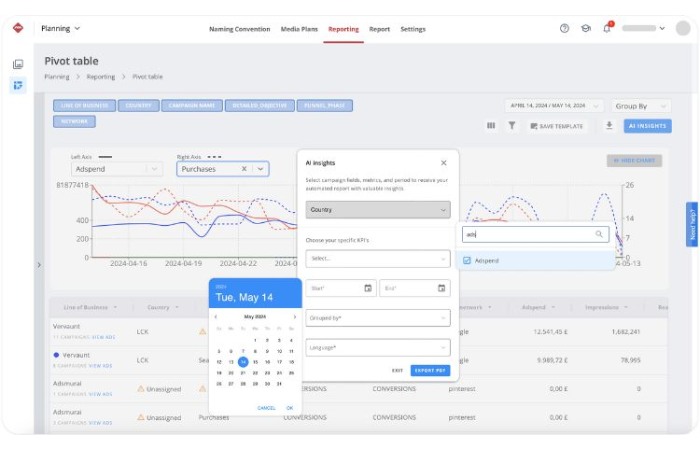
By significantly reducing the time spent analyzing data, our clients can make more informed and timely decisions, taking full advantage of every optimization opportunity. This increased efficiency increases campaign effectiveness and enables greater agility and adaptability to market changes.
Artificial intelligence is transforming the e-commerce landscape, providing brands with powerful tools to optimize performance, personalize the customer experience, and operate more efficiently than ever before. At Adsmurai, we have seen firsthand the positive impact AI can have on paid media campaigns and the overall customer experience. By adopting these technologies strategically and with a customer-centric approach, brands can locate themselves for long-term achievement in an increasingly competitive and dynamic market.
Also Read: How to Delete your Instagram Account from your Mobile
Frequently Asked Questions about AI in E-commerce
1. How is AI used in e-commerce?
AI improves e-commerce in several ways, including:
- Personalized recommendations: AI suggests products based on user behaviour.
- Chatbots and virtual assistants: AI-powered bots provide customer service.
- Price optimization: AI analyzes competitors and dynamically adjusts prices.
- Fraud detection: AI identifies suspicious transactions and prevents fraud.
- Inventory management: AI predicts demand and optimizes inventory levels.
2. How does AI improve the customer experience in e-commerce?
AI improves the customer experience by:
- Delivering personalized spending experiences based on user preferences.
- Offering AI-powered chatbots for instant customer service. Use visual search to help users find products with images.
- Enable voice search for hands-free shopping.
3. What are the best AI tools for e-commerce businesses?
Some popular AI tools include:
- Shopify AI: AI-powered product recommendations and analytics. ChatGPT: AI-powered chatbot for customer interaction.
- Google Cloud AI: Machine learning tools for e-commerce insights.
- Amazon AI: AI-powered demand forecasting and fraud detection.
- Clarifai: AI-powered visual search for product discovery.
4. Can AI help with e-commerce marketing?
Yes, AI improves marketing by:
- Automating email campaigns based on customer behaviour.
- Generating personalized ads using AI-powered analytics.
- Optimize your SEO with AI-powered keyword research.
- Improve social media engagement with AI-generated content.
5. How does AI pricing work in e-commerce?
AI analyzes competitor prices, customer demand, and market trends to:
- Automatically adjust prices to maximize sales.
- Offer dynamic discounts to build customer loyalty.
- Avoid losses due to prices that are too low or too high.


